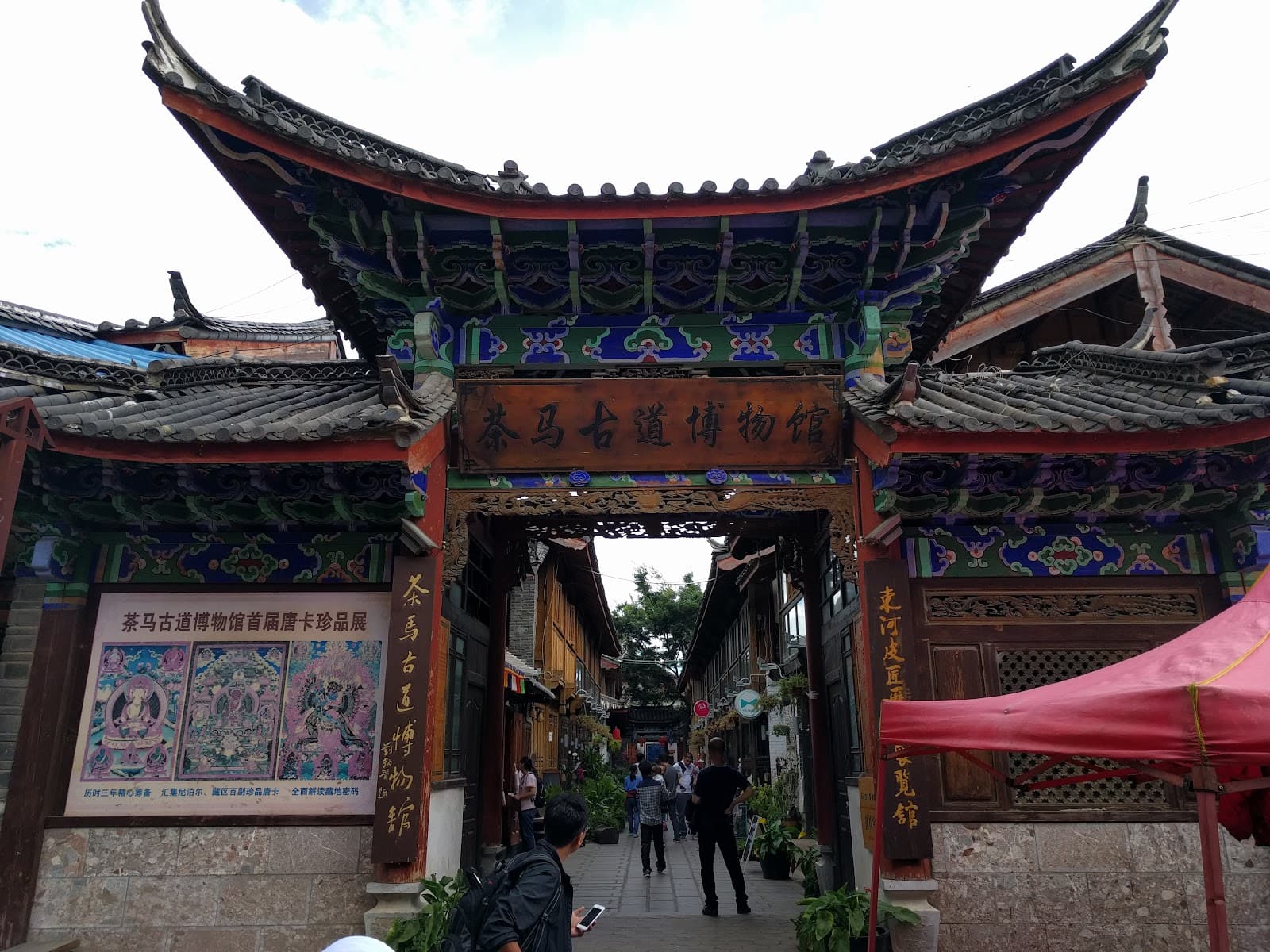
Shuhe Tea Horse Road Museum
Discover the history of the ancient Tea Horse Road and the rich heritage of Chinese tea culture at this insightful museum.
Highlights
Must-see attractions
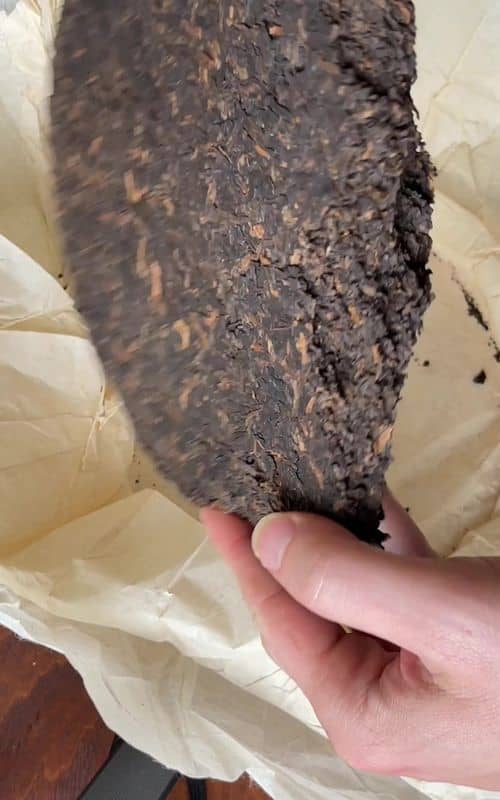
Social
From TikTok & Reddit
Best Time
Fewer crowds, peaceful exploration

Shuhe Tea Horse Road Museum
Best Time
Fewer crowds, peaceful exploration
Highlights
Must-see attractions
Discover the history of the ancient Tea Horse Road and the rich heritage of Chinese tea culture at this insightful museum.
"A great venue with a thorough introduction of the ancient Tea Horse Route."
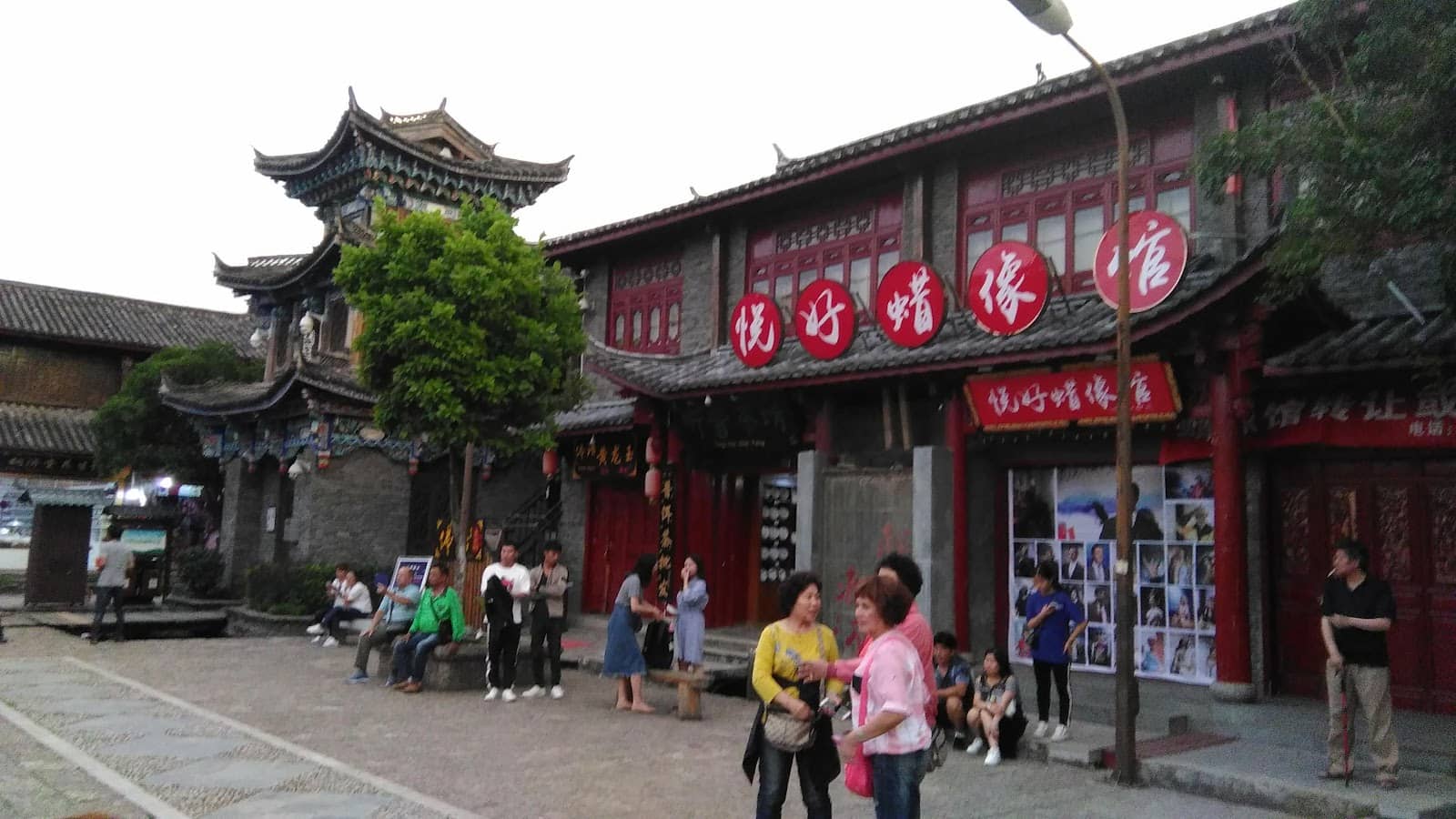
Free Entry Advantage
Enjoy the museum's insights without an entry fee – a great value for exploring tea history.
Language Considerations
Be aware that most information is in Chinese, so consider a translation app if needed.
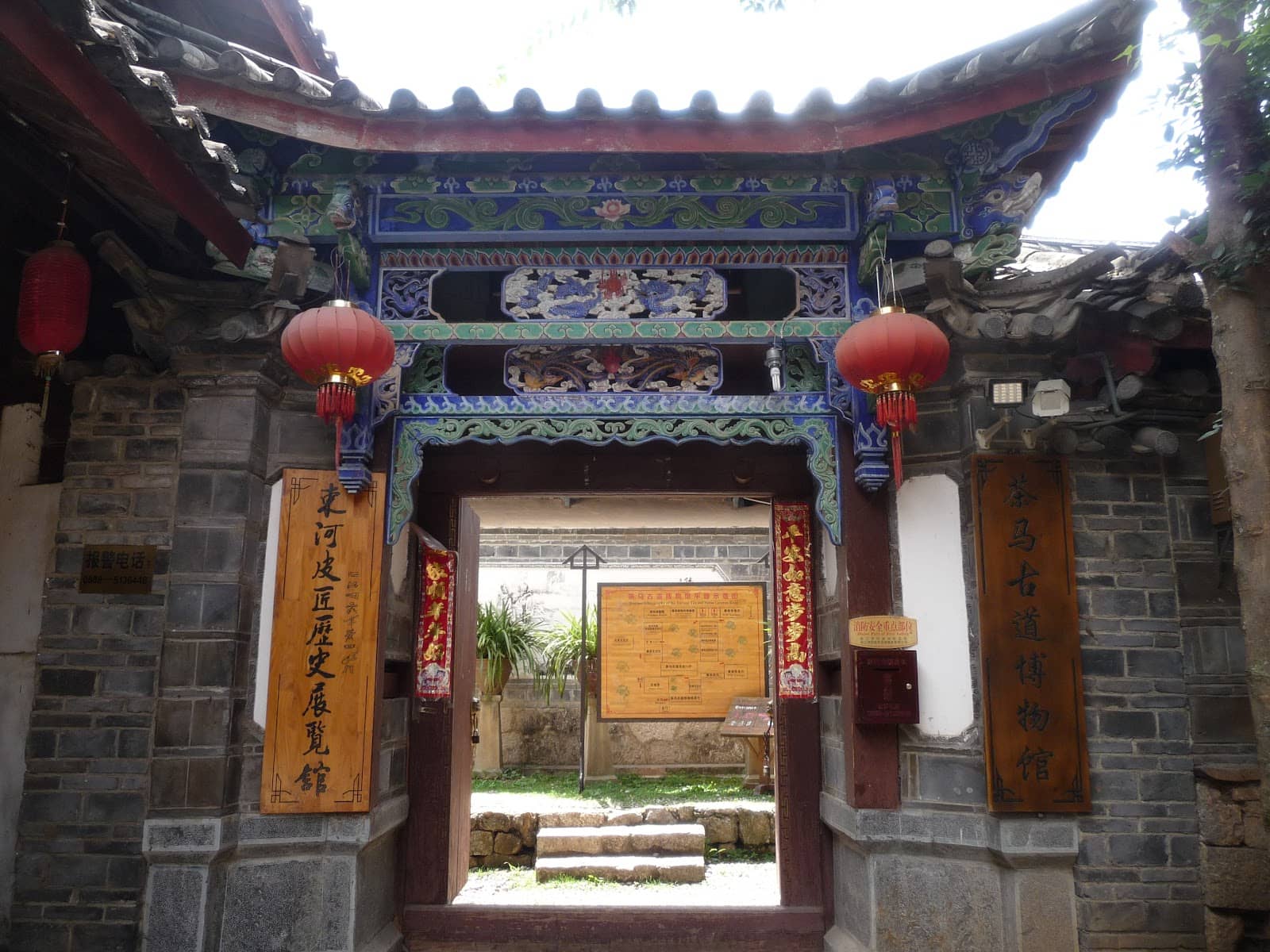
Highlights
Discover the most iconic attractions and experiences

Tea Horse Road History
Uncover the fascinating history of the ancient Tea Horse Road, a crucial trade route for tea.

Chinese Tea Culture Exhibits
Immerse yourself in exhibits detailing the evolution of Chinese tea, from its medicinal roots to elaborate ceremonies.
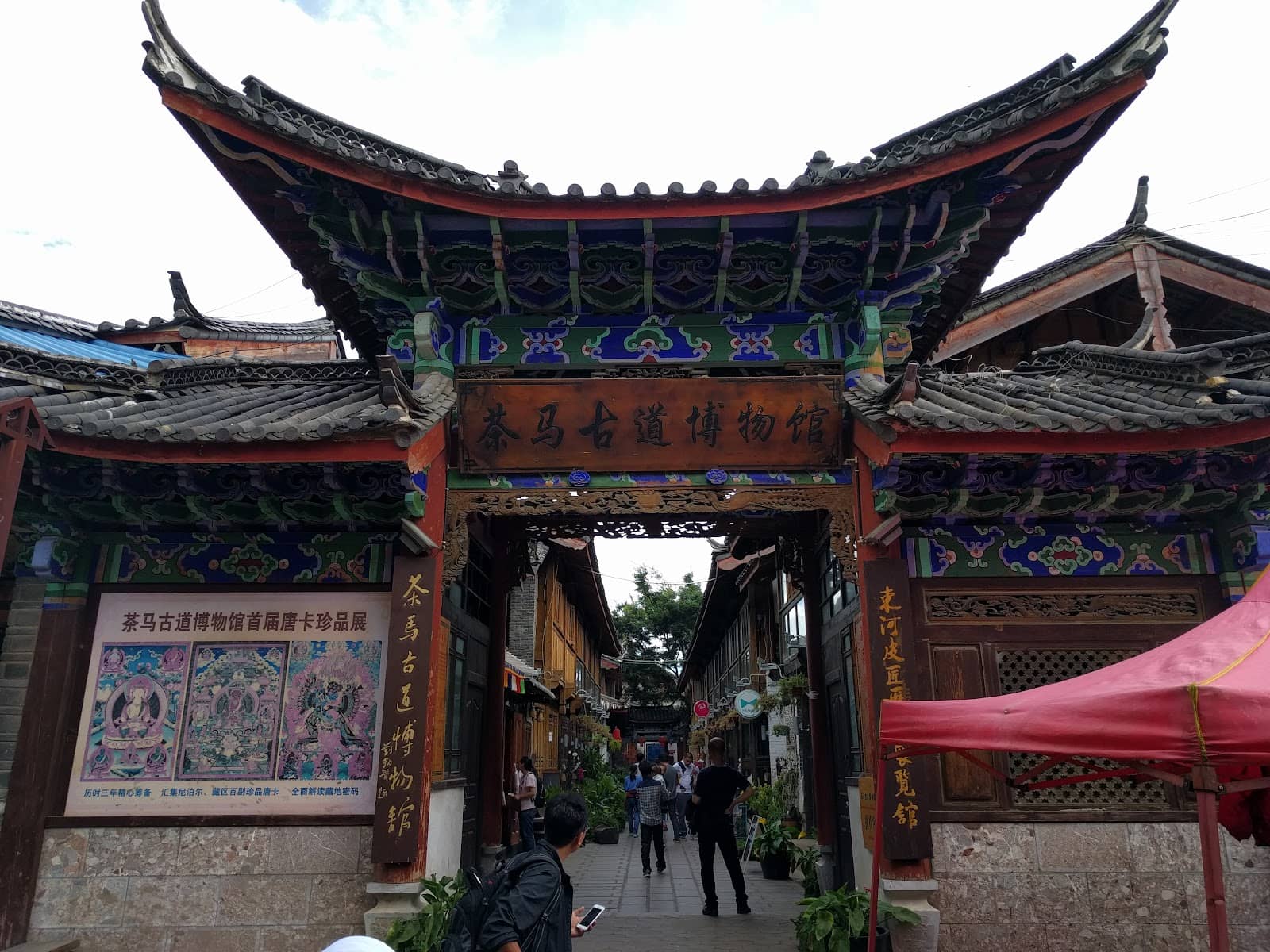
Giant Pu-erh Tea Cake Display
Marvel at impressive displays, including a giant cake of Pu-erh tea, showcasing traditional tea preparation.
Plans like a pro.
Thinks like you
Planning Your Visit
Tea Culture Deep Dive
Ancient Tea Horse Road Insights
Best Times
Insider Tips
from TikTok, Instagram & Reddit
Free Entry Advantage
Enjoy the museum's insights without an entry fee – a great value for exploring tea history.
Language Considerations
Be aware that most information is in Chinese, so consider a translation app if needed.
Peaceful Atmosphere
Experience a tranquil environment perfect for learning about tea culture.
Tea Knowledge Boost
Gain useful information about the ancient tea trade and its cultural impact.
Tips
from all over the internet
Free Entry Advantage
Enjoy the museum's insights without an entry fee – a great value for exploring tea history.
Language Considerations
Be aware that most information is in Chinese, so consider a translation app if needed.
Peaceful Atmosphere
Experience a tranquil environment perfect for learning about tea culture.
Tea Knowledge Boost
Gain useful information about the ancient tea trade and its cultural impact.
What Travellers Say
Reviews Summary
Visitors find the Shuhe Tea Horse Road Museum to be a venue with impressive history, offering a thorough introduction to the ancient Tea Horse Route. While entry is free and the atmosphere is peaceful, some note that most information is in Chinese and the museum is quite basic. One review mentioned it being closed, suggesting checking hours beforehand.
"A great venue with a thorough introduction of the ancient Tea Horse Route."
Emily Kung
"Entry is free, so can't complain much. Pretty basic but some useful information on view about the ancient tea trade"
Wei Li Ng
"Entrance fee 30, small museum. Not much information about tea. Nice and peaceful area. However, most of the information in Chinese language only."
Violeta Orlauskaite
What People Like
What People Dislike
Frequently Asked Questions
🚇 🗺️ Getting There
Information on public transport or driving directions to the museum would be helpful here. As the museum is located in Shuhe Ancient Town, accessing the town itself is the first step. Local buses and taxis are common ways to reach ancient towns in China.
The museum is situated within Shuhe Ancient Town, a popular tourist destination. Accessibility within the town is generally good, with pedestrian-friendly paths.
🎫 🎫 Tickets & Entry
The museum offers free entry, making it an accessible attraction for all visitors interested in tea history.
Opening hours can vary, but it's generally open during typical daytime hours. It's advisable to check local listings or inquire upon arrival, especially as one review mentioned it being closed.
As entry is free, advance booking is typically not required. However, for group visits or specific events, it's always a good idea to confirm.
🎫 ☕ Onsite Experience
The museum provides a thorough introduction to the ancient Tea Horse Route, showcasing its history and significance in the tea trade. You can also find exhibits on Chinese tea culture, including displays of tea cakes.
Most of the information and exhibits are primarily in Chinese. Visitors who don't read Chinese might find it helpful to use a translation app or join a guided tour if available.
While it offers historical insights, the museum's content might be more engaging for adults and older children interested in history and culture. Younger children might find it less interactive.
Visitors often describe the museum as a nice and peaceful area, offering a tranquil environment to learn about tea history.
While specific interactive exhibits aren't detailed, the museum focuses on providing information through displays and artifacts related to the Tea Horse Road and tea culture.
📸 📸 Photography
Photography policies can vary. It's best to look for signage or ask museum staff if photos are permitted, especially without flash, to respect the exhibits.
The displays of tea cakes, historical artifacts, and any unique architectural elements of the museum building itself can make for interesting photographs.
For Different Travelers
Tailored advice for your travel style
👨👩👧 Families with Kids
📚 History Buffs
🍵 Tea Aficionados
Deep Dives
In-depth insights and expert knowledge
The Legacy of the Tea Horse Road
This historical route was instrumental in shaping regional economies and cultural identities. The demand for Tibetan horses in China, especially for military purposes, fueled the tea trade, creating a symbiotic relationship between the regions. The museum's exhibits likely delve into the challenges of traversing this difficult terrain, the goods exchanged, and the people who made this trade possible.
Understanding the Tea Horse Road provides context for the enduring importance of tea in Chinese culture and its role in historical trade. It highlights how a single commodity could create vast networks and influence the development of civilizations.
Exploring Chinese Tea Culture
Different types of Chinese tea, like green tea, oolong, and the fermented Pu-erh tea, are processed differently, resulting in a wide spectrum of flavors and aromas. The museum may feature exhibits on these varieties, their origins, and their cultural significance. The concept of diancha, the original art of powdered tea enjoyed during the Song Dynasty, predates Japanese matcha and underscores China's deep-rooted tea traditions.
Beyond the beverage itself, tea culture in China is intertwined with philosophy, art, and social customs. The act of preparing and sharing tea is often a ritual of mindfulness, hospitality, and connection. The museum's peaceful atmosphere complements this aspect, inviting visitors to appreciate the tranquility and depth associated with Chinese tea.
Social
from TikTok, Instagram & Reddit